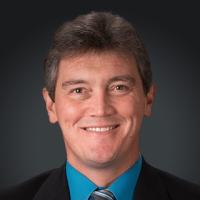The accreditation organization URAC today unveiled a program that will recognize organizations that go the extra mile to ensure they’ve created a sturdy safety net for employees who may be battling mental health disease.
URAC timed the announcement to coincide with World Mental Health Day, an initiative sponsored by the World Health Organization. The accreditation uses the Mental Health at Work Index developed by One Mind at Work, a worldwide coalition striving to develop what it calls the “gold standard” for workplace mental health and well-being.
Shawn Griffin, M.D., URAC’s president and CEO, told Fierce Healthcare that “one of the things that gives organizations a competitive advantage, both for keeping their valuable employees and also for recruiting new employees, is to demonstrate that they have a structure and a strategy around how they take care of their people.”
URAC cited a Gallup survey showing that 19% of U.S. employees describe their mental health as fair or poor, and those workers miss work four times as much as those who rate their mental health as higher. This amounts to a decrease in productivity of $47.6 billion. A 2021 survey by the American Psychological Association found that 3 in 5 employees (59%) experienced negative effects of work-related stress in the last month, while 87% said actions by their employers would help their mental health.
Mental health problems still carry a stigma but not as much as historically, said Griffin.
“When you look at the conversations about mental health now—personal, familial, organizational—you have to recognize that there’s been a change over the past whatever time period you want to pick,” said Griffin, who worked for decades as a primary care physician. “Some of that’s generational, where there’s more openness to discussing these things. It has become such a pain point that it can’t and shouldn’t be kept hidden anymore.”

An individual may not have mental health problems at the moment, but that doesn’t mean that a co-worker or loved one isn’t battling them. Griffin said that the isolation brought about by the COVID-19 pandemic very much affected how the public and corporations feel about mental health issues.
“It magnified the problems that were there,” said Griffin. “That’s really why we’re coming out with this accreditation right now. We want to turn this from where there’s just an acceptance of mental health issues in the world to where there’s an active and structured way to respond to them. To help people get through them.”
The mental health accreditation will review an organization’s strategy and suggest ways to bolster those efforts if needed. URAC predicts this will show both current and prospective employees just how much the organization values adhering to mental health standards contained in the Mental Health at Work Index. The accreditation measures how well an organization:
- Eliminates psychosocial hazards and minimizes risk surrounding mental health
- Develops positive aspects that focus on a worker’s strengths
- Provides access to mental health treatment to take corrective action and address needs
Scoring will occur on four levels that reflect improvement, from reactive and comprehensive and diffused to integrated, according to the URAC press release.
Griffin said URAC used the mental health accreditation on itself and learned from that experience that such efforts should not just be a function of human resources departments. “We really think that approaching this as an organizational effort, and not just a human resources project, is important for this to have a lasting effect on an organization,” said Griffin.
URAC used the Mental Health Work Index to measure its mental health program, and the index highlighted where there was room for improvement. For instance, even though URAC talked about having a robust mental health environment, it failed to give managers mental health first aid training.
“We were putting responsibility on people but not equipping them to respond to it,” Griffin said. “And that’s something that we’re addressing as an organization.”
He noted that some large companies created the position of mental health ambassador or allyship programs. “They have hundreds of employees who serve as informal outside-of-the-HR-path ambassadors to support employees when they’re dealing with mental health issues, or just general health issues.”
One of the paradoxes of the current mental health crisis involves the fact that somebody living in a modern Western democracy lives a better life than 95% of people ever lived.
Still, Griffin said: “This is not something where we need to pat them on the back, give them pep talk, and say ‘Get over it.’ Our current situation with our current standard of living helps to show that this is not the external world pressing in on us and causing these issues. It’s not: ‘How can you be depressed? You have a good life.’ Depression is a medical condition. When I was a physician, I never looked at somebody and said: ‘Why do you have high blood pressure? You’ve got a good job.’”